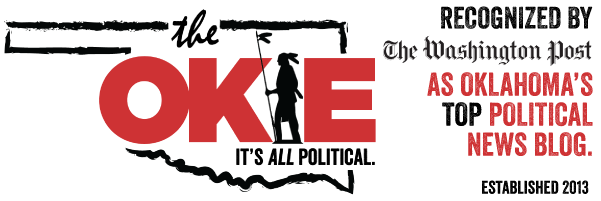Fallin Signs Major Pension Reform Bill
FOR IMMEDIATE RELEASE: May 30, 2014
Governor Mary Fallin Signs Major Pension Reform Bill
OKLAHOMA CITY – Governor Mary Fallin today signed a bill that creates a more flexible pension system for future state workers.
House Bill 2630 moves future state employees from a defined benefit plan to the 401k-style, defined contribution plan being widely used in the private sector. The law does not cover employees designated “hazardous duty” – including firefighters and law enforcement officers—or teachers. It does not change the pension system for current employees or retirees.
“This bill allows flexibility for future state employees to take the money they have accrued if they change careers,” said Fallin. “That helps us to make state employment more attractive and aids in recruitment.”
The bill also starts to address the unfunded liability within the debt-burdened system that currently exits.
“Oklahoma pension systems currently have $11 billion in unfunded liabilities,” said Fallin. “The system as it stands today is not financially sound or sustainable. Moving future hires to a 401k-style system helps to ensure we can pay our current retirees and employees the benefits they have already earned.”
HB 2630 affects employees hired after November 1, 2015 who are part of the Oklahoma Public Retirement System (OPERS). The system will phase out the state’s current pension system over the next several decades and reduce the state’s unfunded pension.
HB 2630 requires those new OPERS employees to contribute a minimum of 3 percent to their retirement, and the state will match the employees’ contributions up to 7 percent.
The law will also apply to officials elected or appointed after November 1, 2015.
###
FOR IMMEDIATE RELEASE:
Contact: Rep. Randy McDaniel
Major Pension Reform Signed into Law
OKLAHOMA CITY – A pension reform measure estimated to produce $3.8 billion in savings over 30 years was signed into law today. Currently, the state pension system has more than $11 billion in unfunded liability.
House Bill 2630, authored by Rep. Randy McDaniel and Sen. Rick Brinkley, creates a 401(k)-style defined contribution system for new employees who are part of the Oklahoma Public Employee Retirement System (OPERS) based off of models used in the private sector. The transition of state employees into a defined contribution plan was made a top legislative priority by state leaders at the start of session.
McDaniel, the chair of the House Pension Oversight Committee, said state leaders worked diligently to enact this substantial reform.
“Major paradigm changes are difficult to achieve,” said McDaniel, R-Edmond. “There are many obstacles to overcome. Fortunately, state leaders worked together to chart a new course for a more prosperous and sustainable future.”
The state’s existing defined benefit pension system has resulted in its current unfunded liability, McDaniel said. The costs associated with shoring up the pension plans impact all other priorities and have created one of the state’s greatest financial challenges, he said.
“The new retirement system has many advantages for employees and the state,” McDaniel said. “The primary attributes include more individual freedom and less government debt. Future employees will have an entire career to build up personal retirement savings. They will have greater freedom to pursue their goals while also reducing the burden on taxpayers and the state. The costs are predictable and affordable. Since the benefits are required to be completely paid for upfront, new unfunded liabilities are not created.”
HB 2630 enables new workers to contribute between 3 and 7 percent of their salaries into the retirement system in order to receive a dollar-for-dollar match from the state. Participants will become 20 percent vested in the retirement system after one year and are completely vested after five years. When employees leave their government jobs early, they receive their contributions back plus a percentage of the state’s contribution and the earnings made, based on their length of service.
Under the new law, the defined contribution system would take effect Nov. 1, 2015.
###

